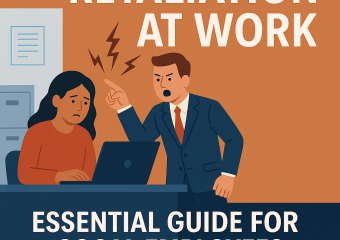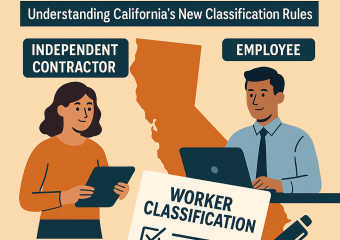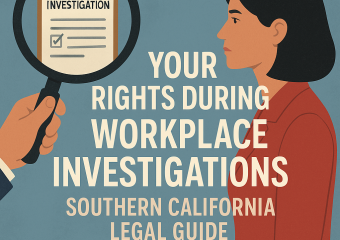Anaheim Gig Workers and the Law: What AB5 Means for Your Rights
Anaheim Gig Workers and the Law: What AB5 Means for Your Rights
Introduction to AB5 for Anaheim Gig Workers
Anaheim’s gig economy has experienced significant growth in recent years, with more individuals turning to freelance and contract work, particularly in fields like rideshare driving, delivery services, and various independent professions. Assembly Bill 5 (AB5), enacted by California in January 2020, could drastically alter how gig workers in Anaheim are classified and awarded rights under state labor laws.
Understanding AB5 and Its Impact on Gig Workers
AB5 was introduced to address issues related to the misclassification of workers as independent contractors instead of employees. The bill employs a legal standard known as the “ABC test” to determine a worker’s status. To be considered an independent contractor, a worker must:
A) Be free from the company’s control while working.
B) Perform work that is outside the usual course of the company’s business.
C) Be customarily engaged in an independently established trade, occupation, or business of the same nature as the work performed.
For many gig workers in Anaheim, this reclassification could mean changes in their job status — transitioning many from independent contractors to employees. This shift is critical as it can unlock benefits such as minimum wage rights, health insurance benefits, workers’ compensation, and unemployment insurance.
The Benefits of AB5 for Gig Workers in Anaheim
For gig workers who qualify as employees under AB5, the advantages are substantial. Employment status provides a safety net that many freelancers lack. For example, as employees, gig workers would be entitled to earn at least the minimum wage and have overtime pay calculations based on their hours worked, which were not guaranteed previously. Health benefits and sick leave provide additional security, particularly relevant in the wake of health crises such as the COVID-19 pandemic.
Moreover, unemployment insurance becomes accessible to those who might lose their job, an option that was not available to many gig workers before AB5. For gig workers injured while performing their job, having workers’ compensation insurance can ease the financial burden associated with medical treatment and recovery time.
Challenges and Opposition to AB5
Despite its intentions, AB5 has faced significant resistance from both companies relying on gig workers and the workers themselves. Major gig economy players such as Uber, Lyft, and DoorDash have expressed concerns that the legal requirements to classify gig workers as employees could potentially undermine their business models, which rely heavily on the flexibility of contracting gig workers.
Some gig workers also prefer the independence and flexibility of being independent contractors, rather than being tethered to the stricter schedules and control often associated with employment. The law’s impact has prompted a debate about achieving a balance between flexible working conditions and labor protections.
In response to the pushback, Proposition 22 was introduced and passed in November 2020, allowing app-based transportation and delivery companies to continue treating drivers as independent contractors while offering them certain limited benefits such as stipulated earning minimums and health insurance contributions, based on engaged driving time.
Continuing Developments and Legal Considerations
The landscape of gig work laws continues to evolve in Anaheim and across California. It is crucial for gig workers to stay informed about ongoing legal challenges and alterations to AB5 and Proposition 22. Legal battles and negotiations are likely to continue, as stakeholders from all sides push for adjustments and reforms that best meet their needs.
For gig workers affected by these laws, consulting with legal experts who specialize in employment law can provide deeper insights and help navigate these complex regulations. Understanding your rights and responsibilities under AB5 is essential in making informed decisions about your work and its future.
Conclusion: Navigating New Norms
AB5 marks a significant shift in the gig economy landscape, advocating for greater worker protections in Anaheim and beyond. Whether this shift heralds a new era of employment justice or more conflicts and challenges in the gig sector remains a subject of ongoing observation and adjustment. For gig workers, staying informed and agile will be key to navigating this evolving legal terrain.
Understanding AB5’s implications helps safeguard your rights and ensures a better working environment suited to your personal and professional growth in Anaheim’s vibrant gig economy.




